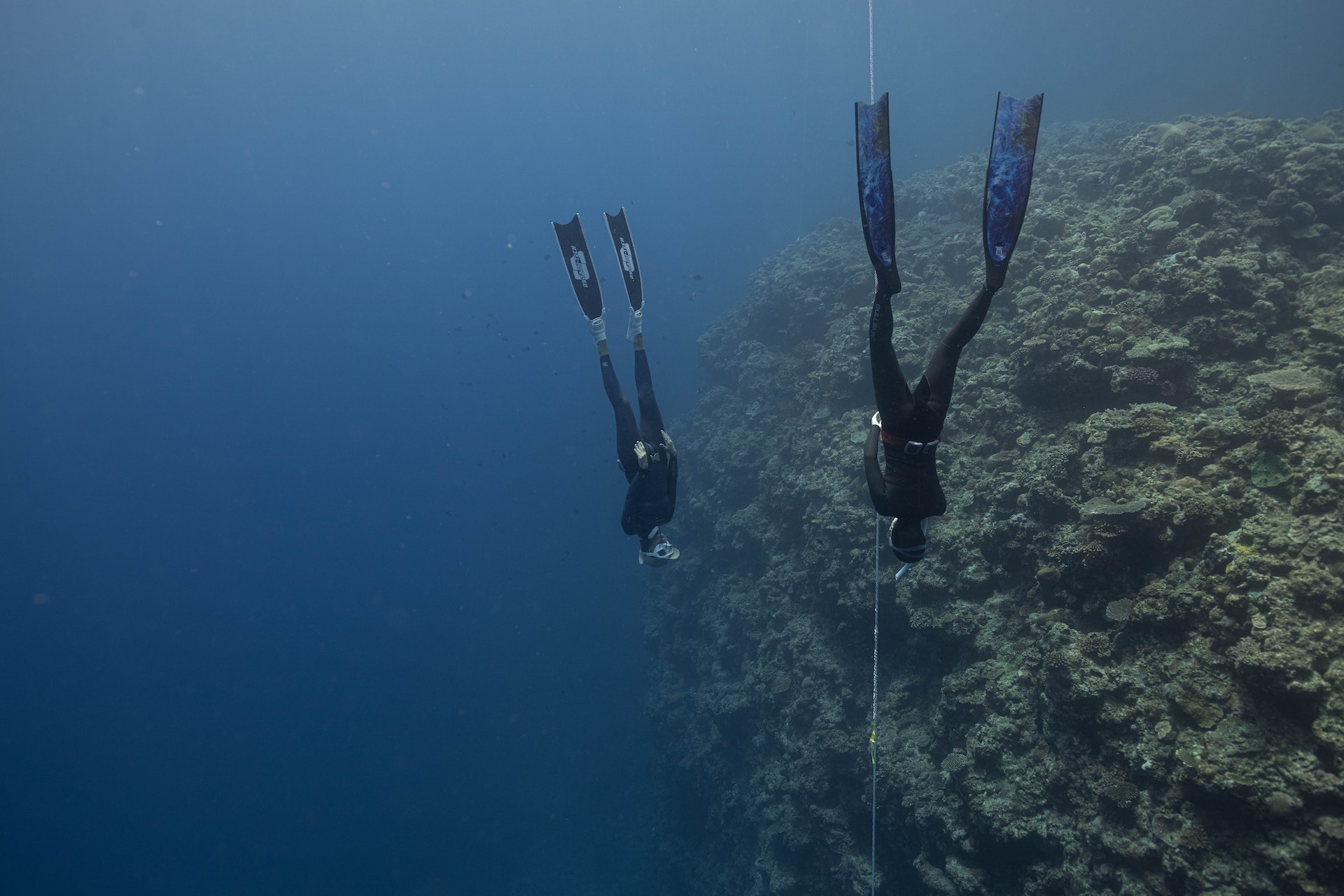What Free Divers Deaths Can Teach Us about Safety

Grit is one of the defining features of humans — but it must be accompanied by wisdom (read: safety, planning, and precaution).
We can persevere in the face of extreme situations to out-endure our obstacles, many of us without regard for safety. The ability to adapt and persevere is one of the most admired traits in our culture. Yet, our ability to endure can often lead us into situations that we can not recover from.
I was listening to Dr. Andrew Huberman discussing free divers’ ability to suppress the body’s response to a build-up of carbon dioxide in the lungs.
In normal people, the first response we have to this signal is to gasp for air. However, divers are able to suppress this reaction. This allows them to continue to swim to great depth.
The average person can hold his/her breath for approximately two minutes. Try holding your breath right now to see how long you can last. Post your time in the comments. Free divers hold their breath for more than 10 minutes. The current record for holding breath under water held by Aleix Segura is 24 minutes and 3 seconds.

Free divers are so good at suppressing the body’s warning signal that they face a different problem. Dr. Andrew discusses the way free divers die. “The way they die is they’ll just be swimming along feeling completely calm because they have trained up this carbon dioxide tolerance. When they die, they don’t suddenly feel like, ‘Oh, my goodness, I’m running out of air.’ Not at all. The ‘lights’ simply go black. That’s it. They are alive, and then they are gone.”
The issue with free divers isn’t that they weren’t aware of what was happening. They have become so comfortable with the feeling of carbon dioxide build-up that they don’t realize they are crossing a point of no return.
The heroic superpower of endurance and grit in the face of adversity that pushes humankind to achieve the impossible is the same power that leads people to become complacent around risks (i.e., the lack of safety, as well as the lack of concern for it).
Risk normalization is the process by which people who are regularly exposed to a particular risk become gradually more complacent around and about that risk over time. Like how the first time you drove a car, you gripped the steering wheel tightly, but after a while, you began to relax and “zone out” while driving.
As organizations, we praise workers who can get the job done under extreme conditions. This can manifest in the experienced worker who gets rid of a “cumbersome” safeguard because it is just for inexperienced people. Just like we believe it is extreme to put your life at risk by ignoring the warning signs of your body, ignoring safeguards is just as dangerous.
To understand more about how to combat risk normalization and bypassing safeguards check out the Stopping Human Error Course at the 2023 Global TapRooT® Summit.



